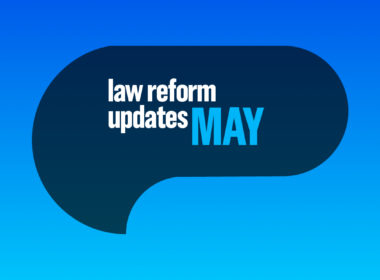Key developments
- Impact of public health order fines on vulnerable groups
- Department of Home Affairs Discussion Paper on the proposed ‘National Data Security Action Plan’
- Inquiry into the Road Transport Amendment (Medicinal Cannabis- Exemptions from Offences) Bill 2021
- Next steps to improve Australia’s settlement and integration of refugees
- Consultation on a Model for a National Compensation Scheme for Modern Slavery Survivors
- IRO error in Weekly Payments Discussion Paper
- Proposed funding approach- federal jurisdiction matters
- Inquiry into the domestic application of the UNDRIP
Impact of public health order fines on vulnerable groups
The Indigenous Issues, Public Law, Human Rights and Children’s Legal Issues Committees contributed to a Law Society letter to the Premier. The letter provided detail on the scope and nature of injustice and significant hardships arising from the disproportionate issuing of public health order (‘PHO’) fines in areas of high Aboriginal population and high social disadvantage, and on the impact that pursuing enforcement is having on Local Court workloads. We submitted that putting in place two administrative measures to mitigate the impacts of fines administration may ameliorate these effects.
Between March 2020 and 31 March 2022, Revenue NSW data shows that 61,586 PHO fines were issued. Of these, 45,712 fines are now overdue. As at 31 January 2022, 3,563 PHO fines had been issued to children aged between 10-17 years. Revenue NSW data also shows that postcodes with high Aboriginal populations were among the towns with the highest number of fines issued per capita during the Delta outbreak. The data available also shows at least 71 amendments to the public health orders between July 2021 and October 2021.
We proposed that the Government:
- convert all fines issued to children to cautions or waivers;
- create a new review dispute resolution pathway within Revenue NSW for reviewing PHO fines, including those which have been previously refused. We submitted that the reviewing officer should adopt a presumption in favour of exercising their discretion under the Fines Act to withdraw a fine in respect of a review request that raises unfairness in the issuing of the fine.
Department of Home Affairs Discussion Paper on the proposed ‘National Data Security Action Plan’
The Privacy and Data Law Committee contributed to a submission to the Law Council on a Department of Home Affairs Discussion Paper on the proposed ‘National Data Security Action Plan’, which outlined a series of questions relating to privacy and data security.
The Law Society is supportive of the adoption of the European Union’s General Data Protection Regulation (‘GDPR’), as it is cited as a best practice example by experts in the field. Additionally, achieving GDPR adequacy would have significant benefits for Australian businesses in the form of reduced compliance costs associated with negotiating contractual provisions and streamlined interactions with businesses trading in the EU.
The Law Society supported a whole-of-government approach to digital strategy. Such an approach is important to ensure a consistent and principled approach is taken across government agencies, and that quality or safeguards are not dependent upon the department or portfolio in which the project is housed. We consider that it is critical to avoid fragmentation through a piecemeal approach to data security practices.
The submission noted members’ observations that the main challenge faced by industry is the patchwork quality of data security regulation. Australia relies on a patchwork of legislation and international human rights obligations in relation to data security requirements.
Inquiry into the Road Transport Amendment (Medicinal Cannabis-Exemptions from Offences) Bill 2021
The Criminal Law Committee contributed to a submission to the NSW Legislative Council’s Standing Committee on Law and Justice inquiry into the Road Transport Amendment (Medicinal Cannabis-Exemptions from Offences) Bill 2021 (‘the Bill’). The Bill was introduced by The Greens in November 2021.
The object of the Bill is to amend s 111 of the Road Transport Act 2013, to exclude users of medicinal cannabis from the application of the offences relating to driving while a prescribed illicit drug is present in a person’s oral fluid, blood or urine.
The Law Society supported the Bill. We noted that the Government has provided a medical defence to those who legitimately use morphine for their pain, and we consider it appropriate to provide the same defence for those who legally use medicinal cannabis.
We suggested that the Bill requires amendment to clarify that consumption in accordance with the guidance of a doctor is required under the Bill. We further suggested that the accused should bear the evidentiary onus to raise the defence and the onus should thereafter shift to the prosecution to negative it beyond a reasonable doubt, similar to that provided for morphine in s 111(5) of the Road Transport Act 2013.




